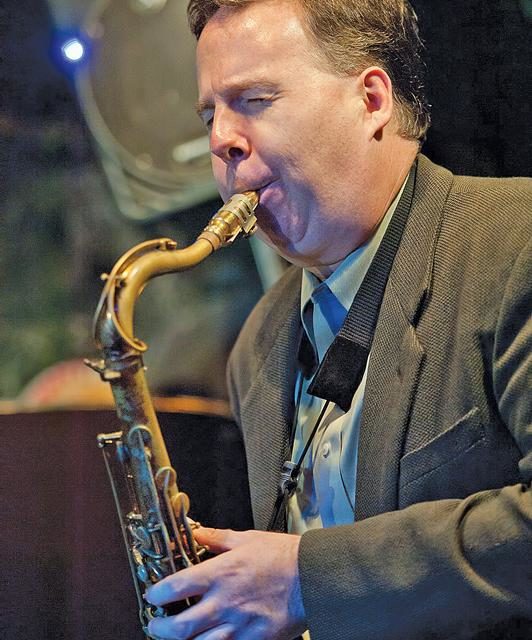In the early 1940s a small group of young musicians changed the harmonic, melodic, and rhythmic foundations of jazz in a movement that became known as bebop or simply bop. At the same time a small group of tenor saxophonists who had grown up enthralled by the idiosyncratic stylings of Lester Young (known as Pres, for President) resisted the full call of the new music and sought to combine the relatively soft sound and complex riffing style of their master with various elements of bop, and a few of them ended up in Woody Herman’s “Second Herd” big band. Herbie Steward, Zoot Sims, Stan Getz, and Serge Chaloff became known as the Four Brothers after a 1947 hit recording of Jimmy Giuffre’s tune of that name. (Al Cohn later replaced Steward.)
By the last decades of the last century, jazz had changed in many ways, but traditionalist aspiring players tended to gravitate toward bop and its latter-day incarnations. Some others, however–most prominently saxophonist Scott Hamilton, born seven years after “Four Brothers” was recorded–came onto the scene in the late seventies with a lyrical but swinging style based on followers of Pres. Hamilton in turn became the mentor of Harry Allen.
A decade younger than Hamilton, Allen began learning music early before settling for the tenor saxophone at age twelve. Soon after graduating from college in 1988 he began to perform with some of the finest players of the day, and his career has since taken him all over the globe. He has recorded with both his mentors and with younger musicians, including guitarist Joe Cohn, Al’s son, who worked in Allen’s regular quartet. He is particularly beloved in Japan, where he has released more than forty CDs and tours on a regular basis.
Allen bases his style on the swinging melodic conversational method of Zoot Sims, with elements of the lyrical expressiveness of Stan Getz, but also on the grittier work of Ben Webster and Paul Gonsalves, who rose to prominence in Duke Ellington’s band. While based in tradition, he is no antiquarian: his music overcomes time, bridging half the history of jazz in a manner that seems natural and effortlessly contemporary, grounded in full control of his instrument and impressive arranging skills.
Like many older players, his solos tell a long story, combining fleet-footed rhythmic variation with melodic ingenuity grounded in an intuitive sense of harmony. He has an endless repertoire of classic jazz and pop tunes, and it seems that no song, no matter how obscure, can stymie him. He expresses all of this with a masterful control of the timbral possibilities of his tenor sax, ranging from honking and gruff blues shouts to the most delicate, whisper-like singing on ballads.
Harry Allen performs on February 7 at the Kerrytown Concert House with old friends: bassist Paul Keller, drummer Pete Siers, and the Chicago-based guitarist Andy Brown.
